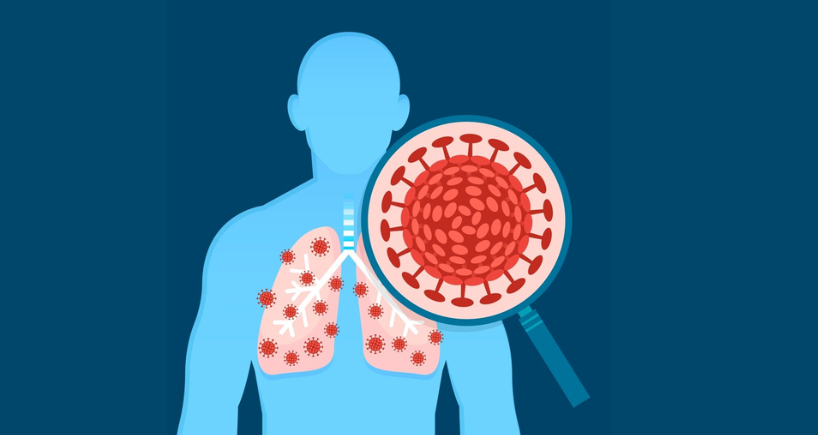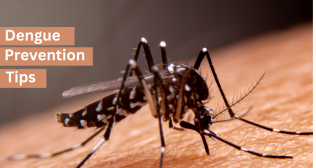
What Are the Most Common Respiratory Diseases and Their Causes?
Respiratory diseases, being ranked the fourth leading cause of morbidity, are a menace to mankind, affecting millions of people annually. A brief description of the most frequent respiratory diseases and the factors that cause them is indispensable for accurate diagnostics, adequate therapy, and prevention.
Acute respiratory illness
A growing number of children and elderly people suffer from acute respiratory infections, which are one of the most common kinds of respiratory diseases. ARIs influence the respiratory system and are categorised as upper respiratory tract infections (URTIs), for example, the normal cold, or lower respiratory tract infections (LRTIs), which include pneumonia.
Common causes:
- Viruses: For example, rhinoviruses, influenza viruses and respiratory syncytial virus (RSV).
- Bacteria: S. pneumoniae and H. influenzae are some bacteria involved in ARI infection in human beings.
- Environmental factors: These include pollution, smoking and poor indoor air quality, which increase the risk of infections.
Symptoms:
- Sore throat, nasal congestion in upper respiratory illness, and high-grade fever.
- Symptoms of a lower respiratory infection include severe cough, chest pain and breathing with difficulty.
Chronic obstructive pulmonary disease
COPD is a chronic disease which includes such diseases as emphysema and chronic bronchitis. It results in further worsening of breathing and impedes the transport of air in the lungs.
Common causes:
- Smoking: COPD is mostly attributed to smoking.
- Occupational hazards: These include exposure to dust, chemicals and fumes in the workplace over a prolonged period.
- Genetic factors: For instance, a deficiency of alpha-1 antitrypsin can lead to COPD.
Symptoms:
- Non-stop cough with secretion
- Breathlessness, which is more so during the times when one has to perform some activities
- Wheezing and chest congestion
Asthma
Asthma is an inflammatory disease of the airways that is characterised by the recurrent and acute worsening of respiratory symptoms such as wheezing, coughing and breathlessness.
Common Causes:
- Allergens: These include dust mites, pollen and animal hairs such as those from pets.
- Environmental triggers: These include cold air, smoke and pollutants.
- Infections: Some of the viral respiratory infections can also worsen the asthma symptoms.
- Exercise: Asthma is often triggered by physical activities, especially when done in cold or dry environments.
Symptoms:
- Asthma attacks, which are characterised by breathing problems
- Coughing and tightness in the chest
- Chronic coughing
Pneumonia
Pneumonia is an acute respiratory infection. It may be caused by bacterial, viral or fungal infection.
Common causes:
- Bacteria: The most common one is Streptococcus pneumoniae.
- Viruses: Influenza and RSV can cause viral pneumonia.
- Fungi: It is possible, although in immunocompromised patients.
- Hospitalisation: This is because a prolonged stay in the hospital will put one at risk of acquiring hospital-acquired pneumonia.
Symptoms:
- Persistent and high fever
- Coughing that is chronic with expectoration of mucous or pus
- Chest discomfort and shortness of breath
Tuberculosis
TB is a communicable bacterial disease caused by Mycobacterium tuberculosis. It mainly involves the lungs, although it can metastasise to other organs.
Common causes:
- Inhalation of bacteria: TB is transmitted from one person to the other through air-borne droplets produced when a TB-affected person coughs or sneezes.
- Weakened immune system: Specifically, it is more dangerous to individuals with HIV or those who are using chemotherapy services.
Symptoms:
- Cough lasting longer than three weeks
- Sore throat, weak muscles, fever, weakness and severe fatigue
- Night sweats and fever
Bronchitis
Bronchitis refers to the irritation of the bronchial tubes that cause difficulty in breathing and pain. It can be acute or chronic.
Common causes:
- Acute bronchitis: This usually arises from a viral infection, such as the flu or the RSV.
- Chronic bronchitis: It is believed to be related to other chronic causes, such as smoking and polluted air.
Symptoms:
- Chronic cough that contains thick sputum
- Whistling noise and pain in the chest area
- Shortness of breath, particularly while exercising
Conclusion
Respiratory diseases are, therefore, many and cut across all ages and can be either acute or chronic, as in asthma and chronic obstructive pulmonary disease. There ought to be recognition of the causes and symptoms to slow down or conquer the diseases. Proper care, vaccinations, diet, exercise, screening tests and early diagnosis can cut down the cost of these diseases, and you can freely breathe again.



















